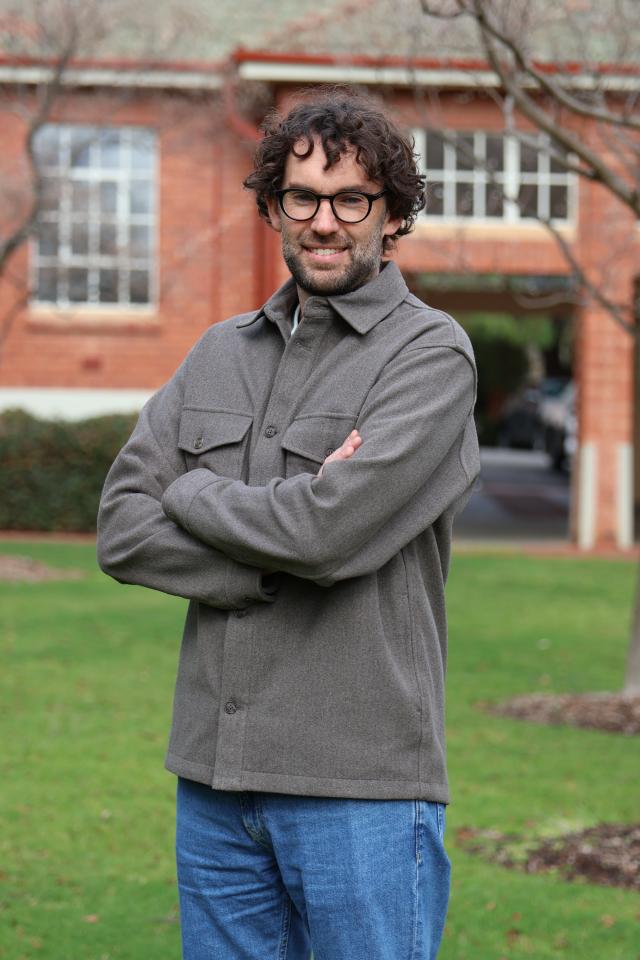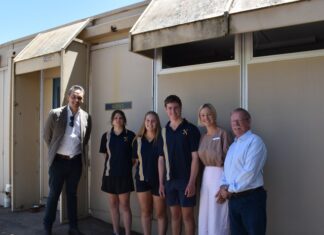Early results from a long-term farming systems trial at Hart in South Australia’s Mid North are showing increased lentil frequency and making adaptive decisions at seeding and within season can deliver stronger, more reliable returns, even in tough years.
The joint Hart Field-Site Group (Hart) and University of Adelaide trial will feature on the program at this year’s Hart Field Day on 16 September.
University of Adelaide researcher and project lead Dr Matt Knowling said after two dry years at the Hart Field-Site, preliminary trial results showed systems with more lentils were showing higher profitability and reliability.
“We’re seeing higher profit and less variability in profit from systems with lentils every second year compared with other rotations,” he said.
“The lentil-wheat-lentil-barley system has so far performed better than the common district practice system of lentil-wheat-barley by about $150/ha.
“While the trial is in the early stages, what we’re seeing after two dry years is that there’s potential for increased legume frequency in our cropping systems in the Mid North of SA.
“This is of course because of the high market value of lentils, but also they use less water and fix nitrogen, meaning they typically leave more water for subsequent crops and lower future fertiliser demand.”
Another standout of the long-term crop rotation trial so far has been the results of a system which puts to the test “adaptive, real-world” decision-making, managed by Hart and local agronomist Craig Davis (Crop Consulting Services).
“Craig uses all of the available information during important decision points within the season, and he’ll make what he thinks is his best decision to try and increase profit and balance sustainability,” Dr Knowling said.
“What we’ve found is that system is performing extremely well, and is actually performing best overall in terms of profitability.
“In 2023, after a wetter than average summer, with soil tests revealing about 120 millimetres of soil water, he went in with a long-season spring wheat so that could be sown earlier, taking advantage of available moisture.
“Then last year, less nitrogen based was applied based on the seasonal forecast, and then given extreme drought conditions, the barley crop was cut for hay.
“Those adaptive decisions have ultimately led to the system performing really well in two challenging years.”
Importantly, Dr Knowling stressed these findings did not rely on new infrastructure or technologies.
“The systems I’m talking about with lentils, wheat and barley – that’s essentially what the growers are most commonly applying in that region already,” he said.
“What we’re seeing is that if you turned up the amount of lentils in your system in dry years, you could do even better.”
Dr Knowling said the long-term trial would continue to test different systems in the current, and 2026 season.
The Hart trial has been designed with grower input and goes beyond yield and profit, considering sustainability indicators such as nitrogen balance, greenhouse gas emissions and soil microbiology.
“We want to give growers confidence that these systems can perform not only financially, but also over the long term and sustainably,” Dr Knowling said.
“Farmers are now asking about things like long-term resilience and how biologically active their soil is.”
Dr Knowling encouraged all growers and advisors to attend Hart Field Day to hear the preliminary results and ask questions.
“I think our session will have a bit of something for everyone,” he said.
“Farming systems research brings everything together – crop selection, rotation, nitrogen strategies, adaptive management, even intercropping and companion cropping.
“The Hart Field Day also gives us the opportunity to hear from farmers and ensure our treatments remain relevant, adapting where possible to maximise outcomes for growers.
“I go home with pages of notes from conversations with farmers. They challenge us, suggest ideas, and keep the research relevant. That’s what makes this work so rewarding.”
The Hart Field Day will be held on Tuesday, 16 September with gates open at 9am and official opening at 10am. First sessions start at 10.30am sharp.
Admission is $45 (students $15), including access to all sessions and guest speakers, as well as a Hart Field Day Guide with articles and information from each of the sessions.
The Hart trial site is 10 kilometres north of Blyth, just off the Blyth to Brinkworth Road. Tickets are now available, and early purchase is encouraged.
While sales will remain open online until lunchtime on the 16th, sign up before you arrive to fast track your way through the gate.
For tickets, or for more information head to the Hart Field-Site Group website www.hartfieldsite.org.au (look for Events/Hart Field Day in the main menu), or contact Sandy Kimber on 0427 423 154, or email admin@hartfieldsite.org.au








